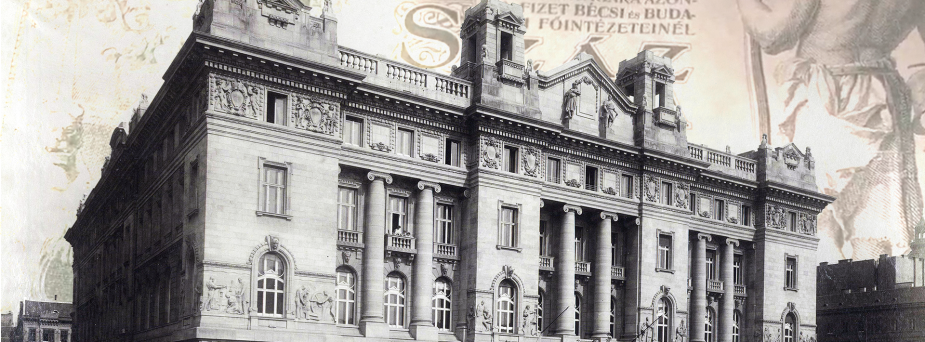
Hunyadi, Petőfi, Kossuth, Széchenyi, Deák. These names are familiar to every Hungarian in one way or another. Legendary historical heroes who fought for the Hungarian Homeland by any means possible. But there are also those who are less well known, but whose genius, knowledge and connections have done a lot for the country. One of them, and perhaps the most prominent, is the first President of the Magyar Nemzeti Bank, Sándor Popovics.
Why do I say the most outstanding? After World War I - and Trianon - Hungary found itself in an almost hopeless situation. Without the loans from the Western countries and the European community, let's say: it would have been ruined. Who knows what kind of nationality we would be now, or what kind of country we would be living in, if it had not been for Sándor Wekerle's pupil, the genius lawyer, who saved Hungary with his financial knowledge, his ground-breaking ideas and his contacts. The documentary film about the life of Sándor Popovics and the founding of the Magyar Nemzeti Bank, entitled The Founding, can be seen every Thursday at the Money Museum, please note that online registration is mandatory to attend the screenings. The film is directed by Attila Szász from a screenplay by Norbert Köbli, with Péter Barbinek and Zoltán Seress in the main roles.
Sándor Popovics was born in 1862 in Pest. Shortly after graduating in law, he worked at the Ministry of Finance. He began his political career in 1890, when he became a ministerial adviser and two years later a deputy government commissioner. He then served as political state secretary, followed by 10 years as governor of the Austro-Hungarian Bank. Sándor Popovics became the first President of the Magyar Nemzeti Bank. The Magyar Nemzeti Bank officially opened on the 24th of June in 1924, and the film shown in the Money Museum was made as part of the MNB100 programme.
During his lifetime, Sandor Popovics was committed to the stability of the crown and the rapid introduction of the pengő. His work during this period was guided by the need to restore the country's creditworthiness. His professional decisions played a key role in overcoming the financial crisis of 1931 and preserving the stability of the pengő. His written works on economics during this period dealt with the stability of money and the fate of currencies during the First World War.
He enjoyed an excellent relationship with Prime Minister István Bethlen, and his advice contributed greatly to the success of Bethlen's consolidation. The trio of István Bethlen, Kunó Klebelsberg and Sándor Popovics rebuilt a Hungary plunged into political chaos since their remade financial institutional system was able to stabilise the country.
As president of the independent, Hungarian central bank, Sándor Popovics guarded price stability, and his views on inflation are still influential today.
"I have the pleasure to inform you that my ill health, which does not allow me to provide the necessary activity for the management of the Bank, and the fact that there is no prospect of this situation changing in the near future, have led me to resign from my position as Governor of the Magyar Nemzeti Bank." - wrote Sándor Popovics in a handwritten letter on the 6th of January in 1935. The first Governor of the Magyar Nemzeti Bank died shortly afterwards. This letter is on display at the Hungarian Money Museum and Visitor Center, along with Sándor Popovics' business card, a copy of his office and his legendary hat.
Further news
All newsThank you for kind your understanding!
Thank you for your kind understanding!
The success of the HUNOR Program is now on display in the exhibition space
Thank you for kind your understanding!
Thank you for your kind understanding!
The success of the HUNOR Program is now on display in the exhibition space



